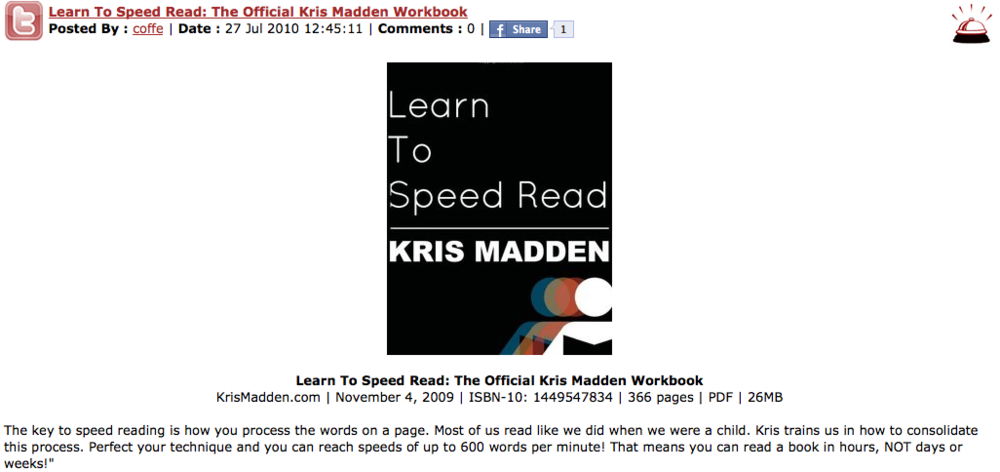Good Advice From Jonathan Franzen

It was December 2004 and I had decided I was going to be a writer. My birthday was coming up, and I had recently begun work on a collection of short stories for publication that would fail on all accounts shortly in the future. I was 18, it was my third semester at college and I was going out with this girl that would become my wife just two years later. The world was my oyster and I was overly arrogant and self-assured about everything I did. I was so sure I would be the youngest writer to win the Nobel Prize and an Oscar for a screenplay, and a Grammy for my soundtrack, and so on in the common tradition of twentysomething’s delusions of grandeur.
So picture this wide, blue-eyed, boy getting his chance to shake hands with a real writer, the same kind of person he wants to be some day. He’s so excited to see a real writer in the flesh, someone who’s won awards, and more specifically someone who had won the National Book Award. Of all places, the writer was coming to Fresno, and his name was Jonathan Franzen. The boy was ecstatic to get a glimpse of what his life might be like someday.
The boy and his girlfriend arrived early to get good seats. The boy clutched a brand new copy of The Corrections in his hands, the spine still stiff, the pages only skimmed.
Franzen came out and read one of his New Yorker pieces, which the boy enjoyed and knew this was someone he should listen to. After the reading, there was a Q and A with audience and throughout the Q and A, the boy went back and forth deciding whether or not he trusted Franzen’s opinions about being a writer.
At one point, Franzen spoke about how he hardly read anymore because he could usually anticipate the book’s plot-turns and storyline. At the time, the boy in the audience had read very little. He wondered if becoming a writer meant losing the motivation to read novels, books, poetry, etc. At another point, someone asked if he’d ever be interested in working on a graphic novel adaptation of his book, and whether he had any interest in the medium. Franzen responded saying that he had no interest in graphic novels and saw them as a passing fad with little substance. The boy was crushed. Had all those years spent reading comics, and Alan Moore, and Frank Miller been for naught? Were they trash?
At the end of the Q and A, the boy walked over to book signing line still deciding what to make of Jonathan Franzen. Was this what all serious writers became? Did they all lose interest reading new books? Did they all think comics were a passing fad? If he chose to be a writer, was this his fate? He wouldn’t find answers to those questions that night and certainly not before he came face to face with Jonathan Franzen. And when it was the boy’s turn to have his book signed he was so excited that all those questions that had been spinning around his mind fluttered away and he was overcome with that overflowing optimism, best shown in the picture from the University’s coverage of the event.
The boy blurted out the first thing that came to mind, “I’m going to be a writer. Do you have any advice for me?”
Franzen looked up and saw the boy’s earnestness and paused for a moment, considering his reply and said, “Don’t do it; once you become a writer you’ll have to write for the rest of your life, and you might be better off doing something else like becoming a doctor or a lawyer, or something. But if you do become a writer then I wish you the best of luck.” The boy perplexed, still mentally digesting everything, requested Franzen, “Could you write that down for me?”
Franzen chuckled, “The whole thing?”
“Yeah,” The boy laughed.
(Flash from camera to the left)
He paused, “How ‘bout…” Franzen speaking and writing simultaneously now: “Don’t. do. It. And, Good. Luck. Frowny face. Smiley face.”
“Thanks,” The boy said and shook the author’s hand, still not knowing what to make of the entire experience.
It’s been six years since then and like a zen koan, those words have echoed in the back of my mind. It wasn’t until after I had finished writing my first book that I began to understand a little of what Franzen’s advice to me meant. Don’t bother looking for the book; it doesn’t exist outside my office bookshelf. It was your typical first-novel that took six months and ran a little over a 150 pages. I pitched the book to every literary agent and publisher with an email address I could find, and every small press as well. And of the hundreds I pitched the novel to, 42 asked to see the first few pages, after which, all 42 said they were not interested.
I had spent six months of my life, and who knows how many hours, creating something that bore no financial-fruit whatsoever. And those delusions of grandeur faded with the book’s monumental failure. It wasn’t too long after receiving the last rejection for the book that I realized what it meant to me to be a writer. And I answered that question that all young writers ask themselves at one point or another, “How do you know if you’re a writer?”
My answer: “You know you’re a writer, when you spend half a year working every day on a book that’s rejected by every publisher on this earth, and after all that rejection, you can’t wait to start writing your next book, your next short story, or whatever. That’s when you’re a writer.”
And so despite all the circumstantial evidence that pointed to that fact that I was a lousy writer, it didn’t matter, I was going to write anyway. And I think that’s what Franzen was talking about too. Once you become a writer, it’s something you’ll be compelled to do for the rest of your life, whether you’re good at it or not. Franzen knows this because he’s a writer, and whether he likes it or not, he’ll be writing for the rest of his life, even if his later work isn’t successful or even published. It doesn’t make a difference to him.
For a long time when I reflected on Franzen’s words, all I could hear was him saying, “DON'T’ DO IT. You’re wasting your life kid.” But now that I’m a writer, I hear his “atta-boy” encouragement, “I wish you the best of luck.”
And so I pass Franzen’s good advice onto other young writers and authors, “Don’t do it, but if you do, I wish you the best of luck.”




Vocalization is not a bad habit!
It is a common habit to vocalize, or at least sub-vocalize while reading. This practice will prevent you from reading any faster than you can say the words. But vocalizing isn’t really just a habit. It actually does help you understand what you read. Sentences are usually made of multiple phrases. Each phrase is an idea, or a separate thought. When you hear a sentence spoken, there are sound clues that indicate these phrases. You may not be aware of it because it’s as subconscious as walking, but listen carefully to the previous sentence when it’s divided into phrases…
When you hear — a sentence spoken, — there are sound clues — that indicate — these phrases.
If you listen carefully to the spoken words, you will notice that the first word of each phrase is spoken in a lower pitch, like a lower musical note. Lowering our pitch indicates to the listener that this is the next thought being presented and this makes our spoken sentences easier for the listener to understand. This lower pitch tells the listener that a new part of the sentence is coming. But these audio clues are not available in written text, and so we have a tendency to sound out the words to listen for them ourselves.
There is a free online application which will take any text and convert it into its natural phrases. It will then display these phrases one after the other at your control or automatically with an adjustable speed control. Go to http://www.ReadSpeeder.com and try it out.
Although there is often more than one way to break a sentence into phrases, ReadSpeeder’s patent-pending process does a good job of quickly finding the natural, meaningful phrases. When the sentence is presented to you in this way, you no longer need to internally sound out the sentences. You will instantly grasp the meaning of each phrase at a glance, just like you grasp the meaning of words at a glance, without thinking of each letter. Faster understanding will lead to faster reading. This method is really the opposite of most attempts to read faster. The usual advice is to push your reading speed, and try to maintain comprehension, with the hope that, with practice, the comprehension will improve. With ReadSpeeder, you understand faster to begin with. Use ReadSpeeder and no longer will you be restricted to reading at the speed of speech. You will be reading at the speed of thought.
If you have any questions, you can write me at dbutler@readspeeder.com
I have to say that I disagree with your line:
“But vocalizing isn’t really just a habit. It actually does help you understand what you read.”
But research continues to show that sub-vocalized reading does not increase comprehension. This is dating back to 1900 with:
Secor, W. B. (1900). Visual Reading: A Study in Mental Imagery. The American Journal of Psychology, 11(2), 225-236.
And the computer program “read speeder” is built to eliminate subvocalization through pushing the larynx to say things faster than it physically can, which then allows the eyes to begin taking in information. So, I don’t understand why you would make a case for subvocalization, when your product helps to eliminate it.
Personally, I think the computer program is neat because it has a nice chunking feature for beginners, but once you’re reading above 800-1000 words, the feature becomes relatively useless.
Thanks for your reply Kris. I suppose you’re right that ReadSpeeder is primarily for beginners. I can see your point that it would be much less useful for those reading over 800 wpm.
I am not familiar with that 1900 study, but wouldn’t you agree that when you read a difficult passage, you naturally go back and vocalize it to better understand the meaning? Most people read in the 200 wpm range, and they tend to vocalize everything for this same reason.
I look at it this way. We’ve had spoken language way longer than printed language, and therefore are much better at communicating with the spoken word. The spoken word has lots of additional information in the form of pitch, volume, and rhythm, which is missing in text. Sounding out the text is an attempt to replace this information. Compared to the spoken word, text is like watching a video in black and white, with low resolution, and poor sound.
Now, if you are referring to ‘chunking’ as simply groups of words, I would not see much benefit to ReadSpeeder other than just pushing you to read faster. But what makes ReadSpeeder work is that it actually finds the natural, meaningful phrases. This is what makes the reading easier to understand; each phrase is a separate idea, and can be instantly recognized without thinking of the separate words.
I’m not trying to make the case or vocalization. Vocalization restricts your reading speed. But if the reader is presented a complete, meaningful phrase, they will not *need* to vocalize. The meaning of the phrase can be instantly grasped in the same way the meaning of a word can be understood without being consciously aware of the individual letters.
Anyway, it’s interesting to hear from someone with an interest and knowledge in this topic. Your comments indicate to me that http://www.readspeeder.com needs to improve its descriptions and explanations. If you have any suggestions, they would be greatly appreciated.
Thanks again for you comments.
Dave
In constructing my responses, I have written a dialogue of sorts between Dave and myself to better organize my thoughts on Dave’s comments and software:
Dave: “Wouldn’t you agree that when you read a difficult passage, you naturally go back and vocalize it to better understand the meaning?”
Kris Madden: No, I don’t agree. More and more research points to the fact that re-reading hinders comprehension. Are you familiar with psychology professor, Mark A. McDaniel, research?
The following is from The Chronicle of Higher Education (http://chronicle.com/article/C.....ite/31819):
“Don’t Reread
A central idea of Mr. McDaniel’s work, which appears in the April issue of Psychological Science and the January issue of Contemporary Educational Psychology, is that it is generally a mistake to read and reread a textbook passage. That strategy feels intuitively right to many students — but it’s much less effective than active recall, and it can give rise to a false sense of confidence.”
Dave: “We’ve had spoken language way longer than printed language, and therefore are much better at communicating with the spoken word.”
Kris Madden: To judge a system of communication based on the length of its history, reduces the importance of developing new ways of communicating with one another. It’s like saying, “We’ve ridden horses longer than we’ve driven cars, or flown airplanes, therefore it’s much better to travel by horse.” Or, “We’ve driven combustion engine cars for longer than hybrids, therefore combustion engine cars are better for travel.”
Dave: “Compared to the spoken word, text is like watching a video in black and white, with low resolution, and poor sound.”
Kris Madden: Comparing the quality of text versus speech, seems to remove the beauty of Helen Keller’s writing and suggests that the written word is an inferior form of communication. I think speech and text both have significant qualities to offer in means of communication, which is why the world still writes and talks, because we need both. I’ve stayed up late reading books that captivated my imagination and at the same time read books that put me to sleep. And I’ve listened to speeches that inspired me, and others that bored that produced less than a “black and white, with low resolution, and poor sound.”
Dave: “But what makes ReadSpeeder work is that it actually finds the natural, meaningful phrases.”
Kris Madden: Using “read speeder”, with the book “A Christmas Carol”, the program divides the line: “… and Scrooge’s name was good upon ‘Change, for anything he chose to put his hand to.” into”
“And Scrooge’s name”
“Was good upon”
“‘Change,”
“for anything he chose”
“to put his hand to.”
To me, it seems like Dickens already divided the line into meaningful phrases using commas. The program seems to only subdivide the Dickens’ original phrasing into the way the computer thinks it should be divided. For a computer to rephrase Dickens, seems presumptuous in my mind.
From Dave’s webpage: “Today, typing and email are so much faster than the old methods of hand-writing and postal-mail. Why should reading still be slow?”
Kris Madden: I agree, “Why should reading still be slow?” I don’t think having a computer divide text into smaller “meaningful phrases” is the key to accelerating a person’s reading speed and comprehension. I think there are more internal factors to take into account than external in development of a person’s reading capabilities.
Dave on September 25th, 2009 5:25 pm